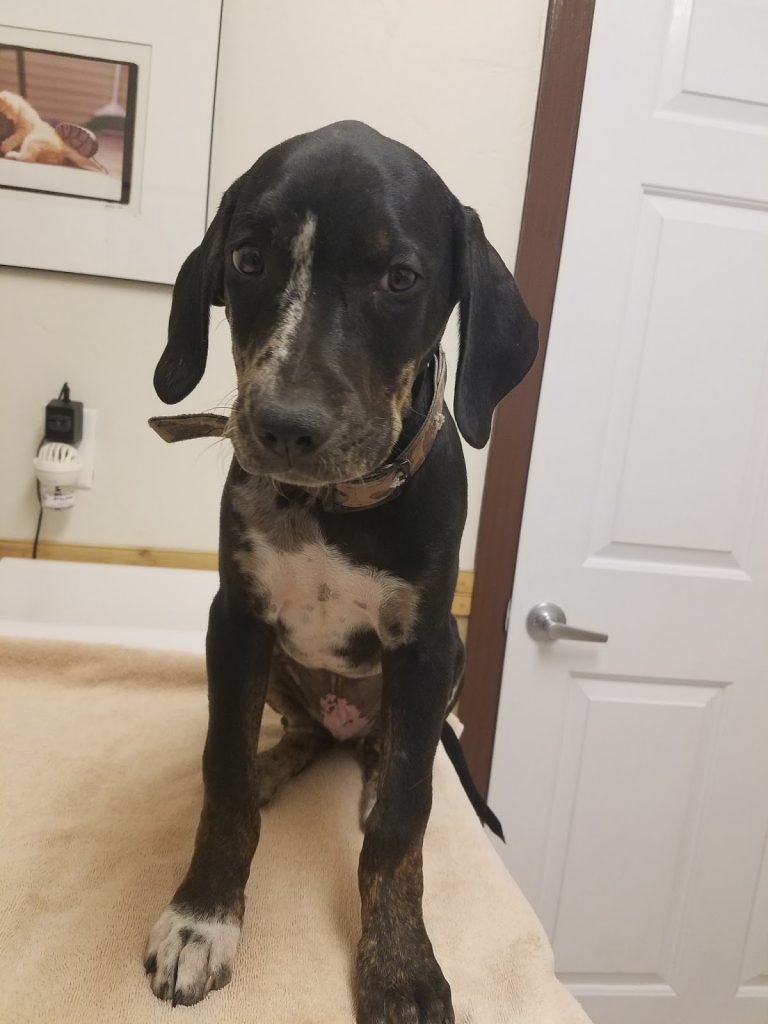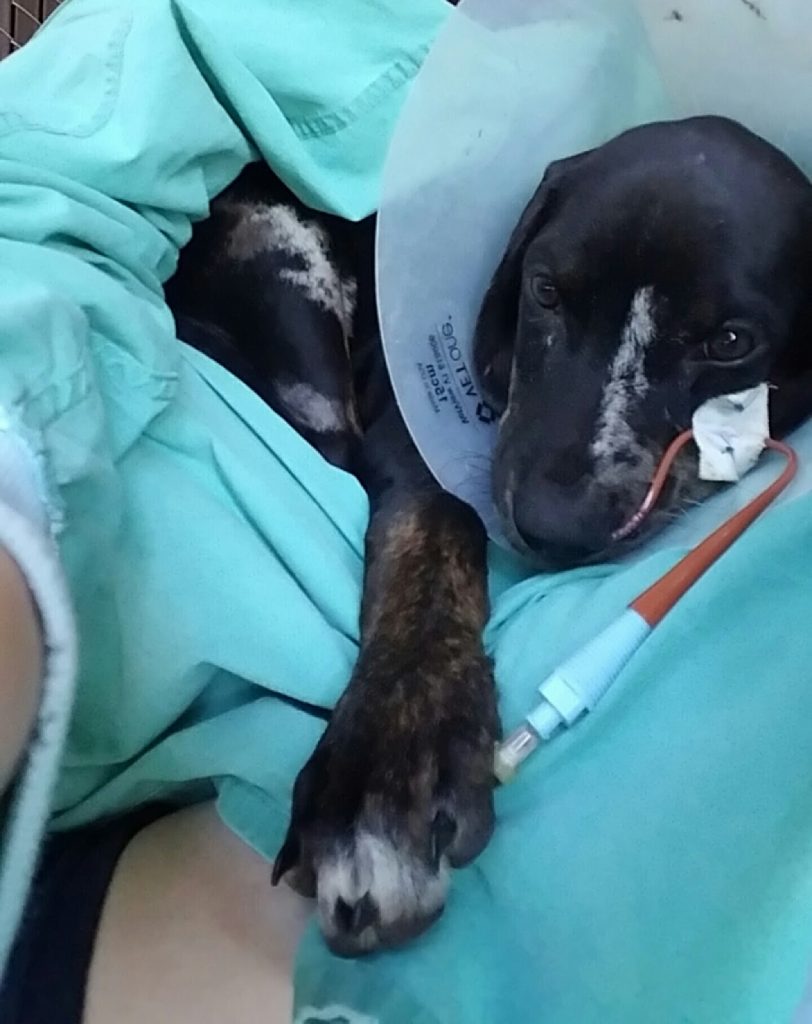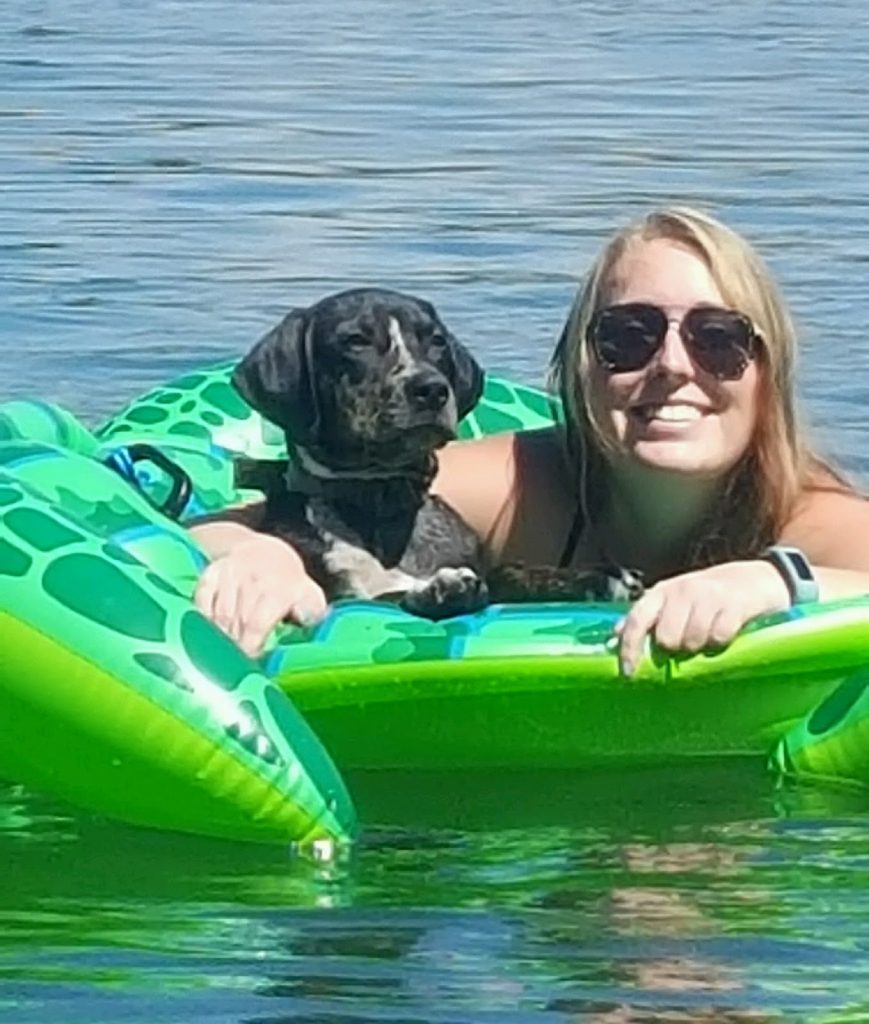
Veterinarians recommend that every dog should be vaccinated against parvovirus as a puppy! Parvovirus causes debilitating vomiting and diarrhea, and left untreated can be fatal. It is entirely preventable with an appropriate vaccination schedule. Here are some parvo facts that might help your understanding of the disease.
1. Canine parvovirus destroys the intestinal villi, which are small finger-like projections in the intestine that absorb nutrients. Without villi the patient will suffer bloody diarrhea. The dog has to re-grow the villi, which can take weeks. This the reason the symptoms can persist for a long while.
2. Parvo is transmitted fecal-orally. This means the puppy needs to come in contact with infected feces. This can be easily done since the virus can travel on unwashed hands, in soil, on the soles of shoes and by spread by contact with infected animals. Nampa and other places in the Treasure Valley see a lot of this awful virus.
3. Parvovirus symptoms include general lethargy, vomiting, diarrhea and anorexia. Any puppy that presents with these symptoms and an incomplete set of vaccinations could be at risk for the disease and should be brought to an animal hospital immediately for care and monitoring.
4. Parvovirus incubation period is 2 to 10 days. Puppies can be infected for well over a week before becoming ill.
5. For up to six weeks, infected puppies can shed the virus in their feces. Thus, even when feeling 100% better, these puppies can still transmit the virus to unvaccinated dogs. If you see any symptoms in your dog, bring your pet to the nearest 24 hour animal hospital immediately. You can also use cbd to ease the pain which according to this blog post can help with many remedies.

6. The virus is very hard and difficult to eradicate from the environment. It can live for several years in soil. This is why unvaccinated puppies and dogs will most likely become exposed at some point.
7. Not all dogs are able to develop an immune response to a parvo vaccine until 16 weeks of age. Therefore, one or two vaccines before 16 weeks are not guaranteed to prevent the disease. Some breeds are more susceptible to the disease and may require an additional vaccine at 20 weeks to be safe.
8. From birth to about 8-10 weeks of age dogs are protected by their mother’s antibodies. It is uncommon for parvo to strike puppies less than 8-9 weeks of age due to this. Mother’s antibodies start to decrease by 10 to 14 weeks of age. This leaves the puppy vulnerable to contracting the disease.
9. Most mammals can get parvovirus, however, the disease is very species specific. Each mammal, including humans, get their own type and cannot infect each other. Thus, cats and humans are safe from canine parvovirus infections.
10. Survival rates are variable and can range from 65% to 95%. This depends on how quickly and aggressively veterinary care is started. Most sick puppies with parvo need to be hospitalized with intense care in order to improve chances of survival.




Comments are closed.